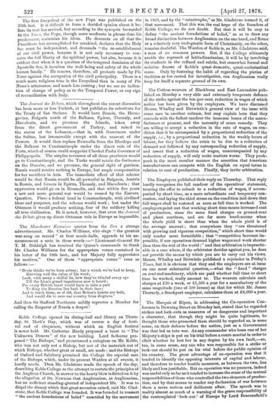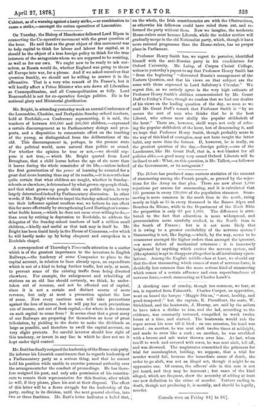The Marquis of Ripon, in addressing the Co-operative Con- ference
in Downing Street on Monday last, stated that he regarded strikes and lock-outs as measures of so dangerous and important a character, that though they might be quite legitimate, he thought those who promoted them should be regarded as, in some sense, on their defence before the nation, just as a Government was that led us into war. As any commander who loses one of her Majesty's ships is put on his trial before a court-martial in crrder to elicit whether he lost her in any degree by his own fault,—so, too, in some sense, any one who was responsible for a strike or lock-out should be put on his trial before the public opinion of his country. The great advantage of co-operation was that it tended to identify the opposing interests of capital and labour, and therefore to render hostile measures, as between the two, less likely and less justifiable. But co-operation was no panacea, indeed was useful only so far as it tended to increase the sense of the mutual responsibilities of those who controlled the two elements of produc- tion, and by that means to render any declaration of war between them a more serious and deliberate affair. The speech was in reality almost as much of a warning of the grave responsibility of the contemplated lock-out' of Europe by Lord Beaconsfield's Cabinet, as of a warning against a hasty strike,—or combination to cause a strike,—amongst the cotton operatives of Lancashire.



































 Previous page
Previous page